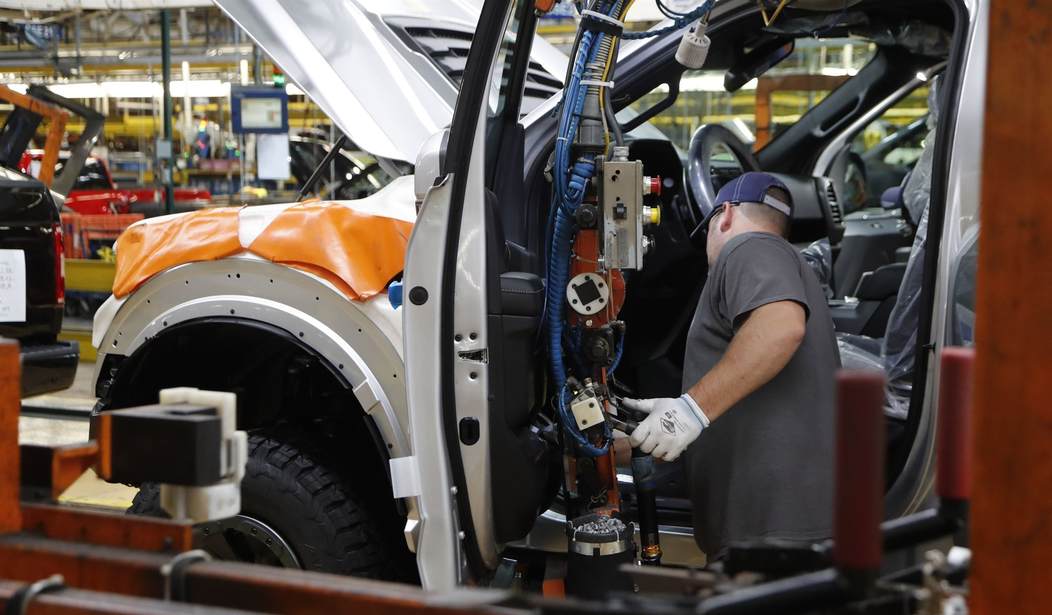As the world begins to heal from the COVID-19 outbreak, news broke Wednesday that a U.S.-based rare-earth materials mining company, MP Materials, was granted a U.S. Department of Defense contract to begin the process of bringing the mining of these elements back to the U.S. and away from China, which had been producing roughly 80% of the world’s supply. These elements are crucial in the development of technological products, notably in high-tech security and defense systems, and the move to bring the supply chain home is a hallmark of a great exodus of business and manufacturing out of mainland China, and not just by the U.S.
A new report by global manufacturing consulting firm Kearney indicates U.S. companies had already began leaving China during the trade war between the two nations that began in 2019, and that chances are good even more will leave due to the pandemic that originated in Wuhan.
The Kearney report notes a “dramatic reversal” in a trend over the last five years as U.S. manufacturing began to grow relative to manufacturing exports from Asian countries, with imports from China hit particularly hard.
"Three decades ago, U.S. producers began manufacturing and sourcing in China for one reason: costs,” said Patrick Van den Bossche, a Kearney partner who helped write the 19-page report. “The trade war brought a second dimension more fully into the equation?risk?as tariffs and the threat of disrupted China imports prompted companies to weigh surety of supply more fully alongside costs. COVID-19 brings a third dimension more fully into the mix, and arguably to the fore: resilience?the ability to foresee and adapt to unforeseen systemic shocks.”
But the U.S. is not alone in reconsidering China as a hub for business. Earlier this month, Japan was reportedly intent on using state funds to help fund $2 billion needed to get their multinational corporations out of China.
Recommended
According to Bloomberg, Japan felt the pain of having supply chains located in China during the pandemic, a criticism the Trump administration also voiced as the U.S. lacks in medical supplies like masks and personal protective equipment for health care providers.
“China is Japan’s biggest trading partner, but imports from China slumped by almost half in February because many factories were closed. Those closures meant Japanese manufacturers had no place to go for supply,” Bloomberg reported.
Additionally, some of the largest tech producers of phones and computers began signaling in March they were interested in exploring development of supply chains outside of China in nations such as nearby Vietnam and India.
Covid-19 is hastening such moves. Eric Tseng, chief executive officer of Taipei-based Isaiah Research, said some companies had been holding back from making any major supply-chain decisions, waiting to see if there would be any lasting resolution to the Washington-Beijing trade spat. “But coronavirus risks people’s lives. Now A lot of companies will accelerate their departure,” he said.
For its part, the U.S. – with the US-Mexico-Canada (USMCA) trade agreement freshly in hand – may be looking to its immediate neighbors to the north and south when scouting potential new sourcing locations.
The Heritage Foundation produced a report this week encouraging exactly that.
Strengthening our partnerships with Mexico and Canada will allow us all to rely less on China in the global supply chain. Lessening vulnerabilities to U.S. supply chains is a key pillar of our economic reconstruction. China cannot be trusted to control important industries. Binational manufacturers in North America are uniquely suited to fix this problem. Companies were already moving production out of China and into Mexico before the pandemic. The United States and Mexico need to accelerate this trend.
The Federal Communications Commission has also recently begun asking questions of Chinese-owned telecom companies “demanding explanation of why the FCC should not initiate proceedings to revoke their authorizations” because of potential threats they pose to national security.
China, once a nation built explicitly for business, has tested the world’s patience in their careless approach to containing the COVID-19 outbreak. As a result, they are about to find themselves begging for customers.
Editor's Note: Want to support Townhall so we can keep telling the truth about China and the virus they unleashed on the world? Join Townhall VIP and use the promo code WUHAN to get 25% off VIP membership!
Sarah Lee is a freelance writer and policy wonk living and working in Washington, DC.

























Join the conversation as a VIP Member